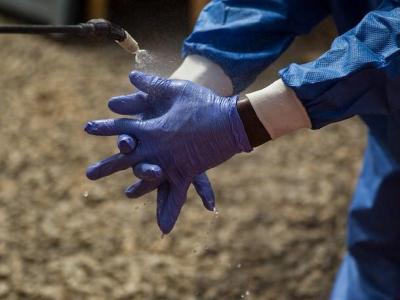Saudi Arabia reports 2 MERS cases, 1 fatal
A healthcare-related MERS-CoV cluster in Buraydah, Saudi Arabia, has grown by 1 case to 14 cases in less than a week, and a man in Jeddah has died from the disease, the Saudi Ministry of Health (MOH) reported today. The agency also noted that a previously reported patient died from his infection.
The new case in Buraydah involves a 50-year-old Saudi man who is hospitalized in critical condition because of MERS-CoV (Middle East respiratory syndrome coronavirus). He contracted the disease from another patient, the MOH said. Buraydah's outbreak began Mar 3.
The man in Jeddah who died was 64. His case is listed as primary, meaning he apparently did not acquire his infection from another patient. The MOH does not specify how the man might have contracted MERS. No recent camel contact is listed. Neither of today's newly reported patients are healthcare workers.
In addition, the MOH said that an 82-year-old in Buraydah died from MERS-CoV in the past 24 hours. He had preexisting disease.
Today's update brings the country's MERS-CoV total since 2012 to 1,330 cases and 562 deaths. Saudi Arabia has already had 20 MERS cases so far this month, the same number the MOH confirmed for all of February. All but 3 of the cases this month have involved men.
Mar 9 MOH update
Study shows streamlined ZMapp-type drug protects monkeys from Ebola
A drug similar to ZMapp but containing only two antibodies instead of three and produced in mammalian cells instead of plant cells protected macaques from Ebola when administered 3 days after infection, according to a study today in Science Translational Medicine.
An international team of researchers noted that two of the monoclonal antibodies used in ZMapp, which has proven effective in monkeys and was used in the Ebola outbreak on some patients, bind overlapping regions on the Ebola virus and may therefore be redundant. So they formulated an experimental drug called MIL77E that was grown in the ovary cells of hamsters and contains only two monoclonal antibodies.
Such a formulation might help improve safety, simplify production, and accelerate drug approval, the researchers wrote. ZMapp is difficult to produce rapidly and in large quantities.
MIL77E completely protected all three monkeys infected with the Makona strain of the Ebola virus responsible for the West African outbreak. They also used a similar two-antibody formulation of plant-cell-produced ZMapp and found that it protected only two of three monkeys.
The results suggest the experimental formulation is likely to be at least as effective as ZMapp, the investigators conclude. And they say MIL77E provides an opportunity to add a third monoclonal antibody specific to other Ebola strains to make a broadly protective Ebola drug.
Mar 9 Sci Transl Med study









